Draining Procedure
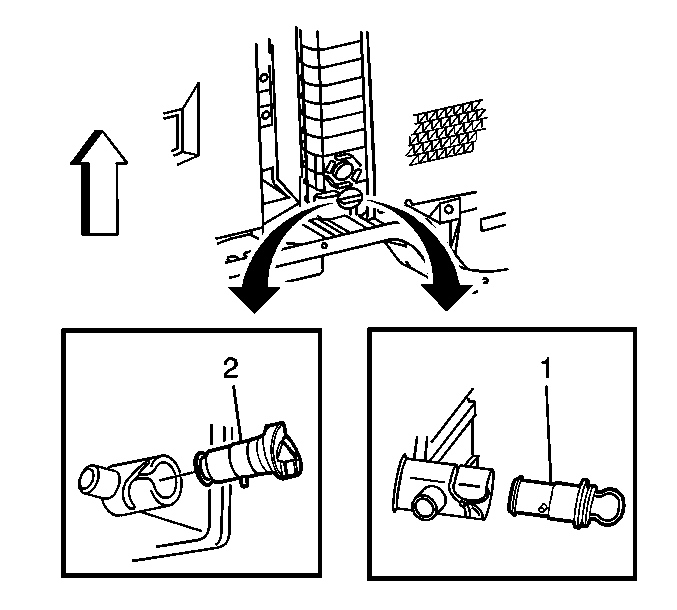
Caution: Under pressure, the temperature of the solution in the radiator can
be considerably higher, without boiling. Removing the radiator cap while the
engine is hot (pressure is high), will cause the solution to boil instantaneously,
with explosive force. The solution will spew out over the engine, fenders,
and the person removing the cap. Serious bodily injury may result. Flammable
antifreeze, such as alcohol, is not recommended for use at any time. Flammable
antifreeze could cause a serious fire.
- Place a drain pan under the radiator drain cock.
- Place the end of the tube in the drain pan.
- After the engine cools down, remove the radiator cap.
- Turn the drain cock counterclockwise in order to allow the coolant to drain.
- Allow the coolant to drain from the system until the flow stops.
- Place a drain pan under the engine block drain hole plug.
- Remove the drain hole plug from the engine block.
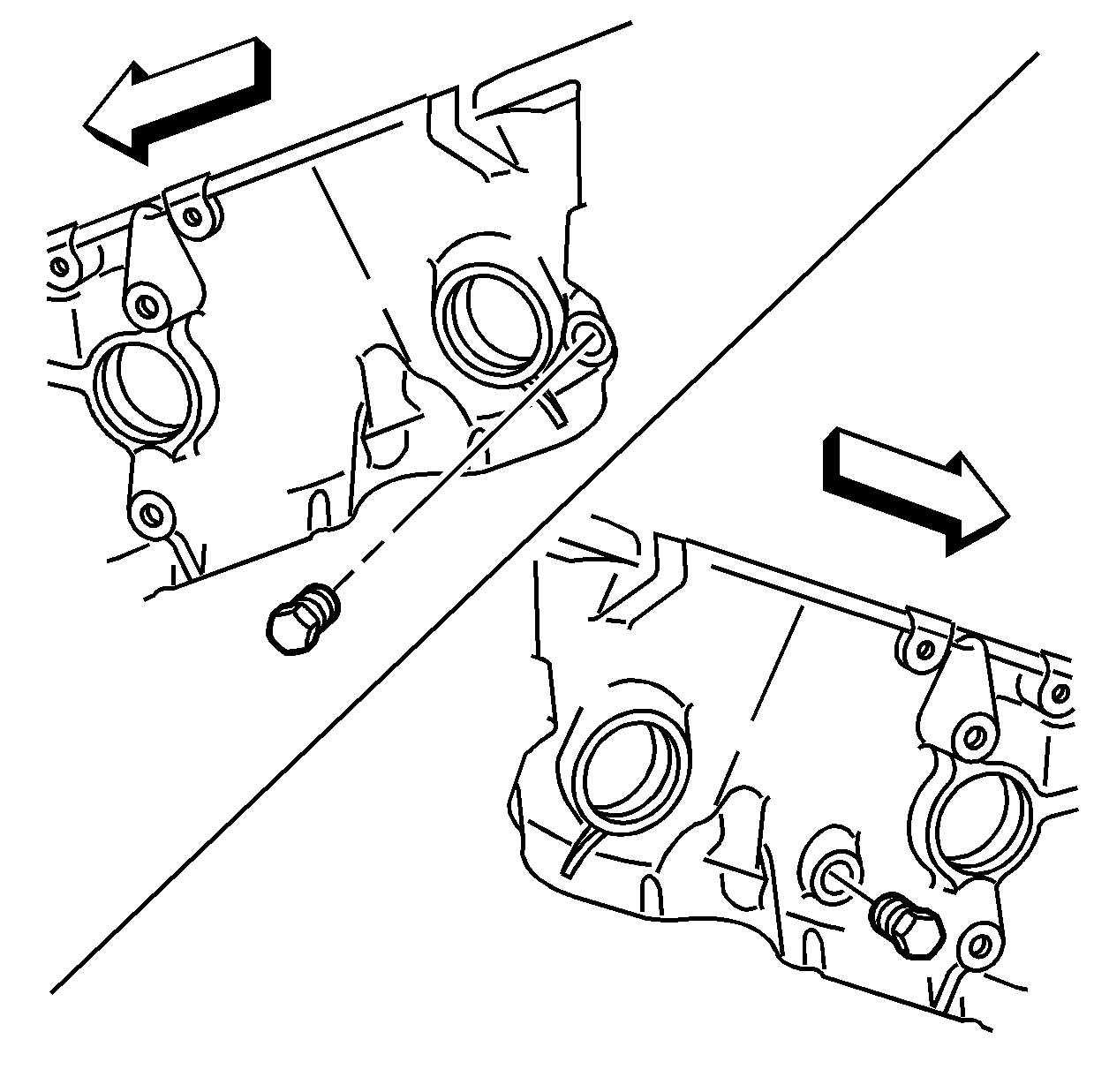
- If equipped with the 4.3L, remove the drain hole plug from the engine block.
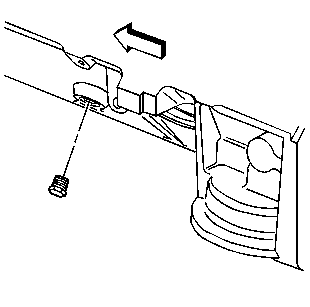
- If equipped with the 5.0L and 5.3L, remove the drain hole plug from the engine block.
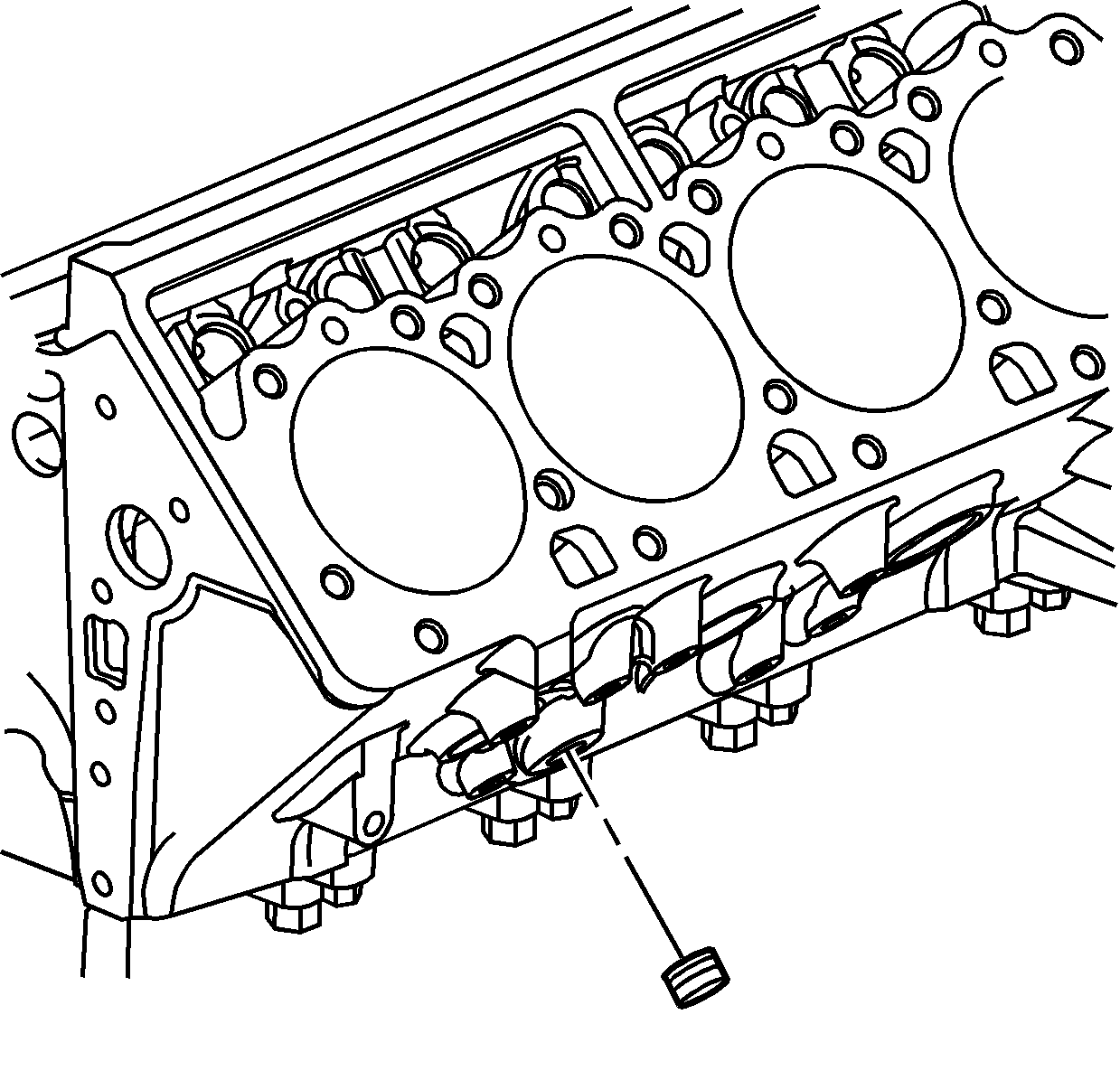
- If equipped with the 6.5L, remove the drain hole plug from the engine block.
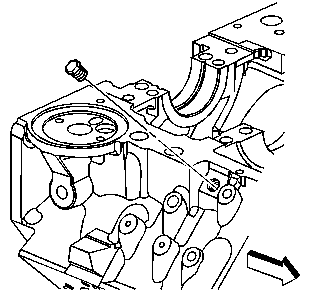
- If equipped with the 8.1L, remove the drain hole plug from the engine block.
- Allow the coolant to drain from the block until the flow stops. There may be more drainage from the radiator at this time.
- Apply Teflon Pipe Sealant GM P/N 12346004 (Canadian P/N 10953480) or equivalent to the threads of the engine block coolant drain hole plugs.
Notice: Use the correct fastener in the correct location. Replacement fasteners
must be the correct part number for that application. Fasteners requiring
replacement or fasteners requiring the use of thread locking compound or sealant
are identified in the service procedure. Do not use paints, lubricants, or
corrosion inhibitors on fasteners or fastener joint surfaces unless specified.
These coatings affect fastener torque and joint clamping force and may damage
the fastener. Use the correct tightening sequence and specifications when
installing fasteners in order to avoid damage to parts and systems.
- Install the engine block coolant drain hole plugs.
Tighten
| • | Tighten the 4.3L, 5.0L, 5.7L and 8.1L engine block drain hole plugs to 20 N·m (15 lb ft). |
| • | Tighten the 6.5L engine block drain hole plugs to 25 N·m (18 lb ft). |
- Close the radiator drain cock.
Filling Procedure
Notice: When adding coolant, use DEX-COOL® coolant. If silicated coolant
is added to the system, premature engine, heater core or radiator corrosion
may result. In addition, the engine coolant will require change sooner-at
50 000 km (30,000 mi) or 24 months.
- Inspect to make sure that the radiator drain cock is closed.
- Inspect to make sure that the block drain hole plug is tight.
- Add the DEX-COOL® to the radiator, then add clean drinkable water to the cooling system. If you use the old coolant, make sure the solution is clean and clear, and that the solution is a 50/50 mixture of glycol and water.
- Place a large top funnel in the radiator filler neck or surge tank.
- Slowly pour in the coolant. Because the thermostat is closed, filling the cooling system may be slow.
- Using the following procedures, bleed the air from the engine cooling system.
| 6.1. | Remove the cap from the surge tank. |
| 6.2. | Remove the bleed screw (slotted) from the top of the thermostat housing. |
| 6.3. | Pour coolant into the surge tank, and watch for coolant flowing from the bleed screw. |
| 6.4. | When a constant flow of coolant is reached, closed the bleed screw at the top of the thermostat housing. |
| 6.5. | Continue to fill the surge tank to the proper level. |
| 6.6. | Install the cap on the surge tank. |
- After filling the cooling system to 13 mm (0.5 in) below the radiator filler neck (4.3L, 5.0L, and 5.7L) or to the full mark on the surge tank (6.5L, 8.1L), start the engine and let the cooling system warm up. When the thermostat opens, the coolant level may drop. If the level drops, add coolant as necessary.
- Install the radiator or surge tank cap.
- Inspect the coolant level in the coolant recovery reservoir (4.3L, 5.0L, and 5.7L) or the surge tank (6.5L, 8.1L). Add coolant as necessary.





